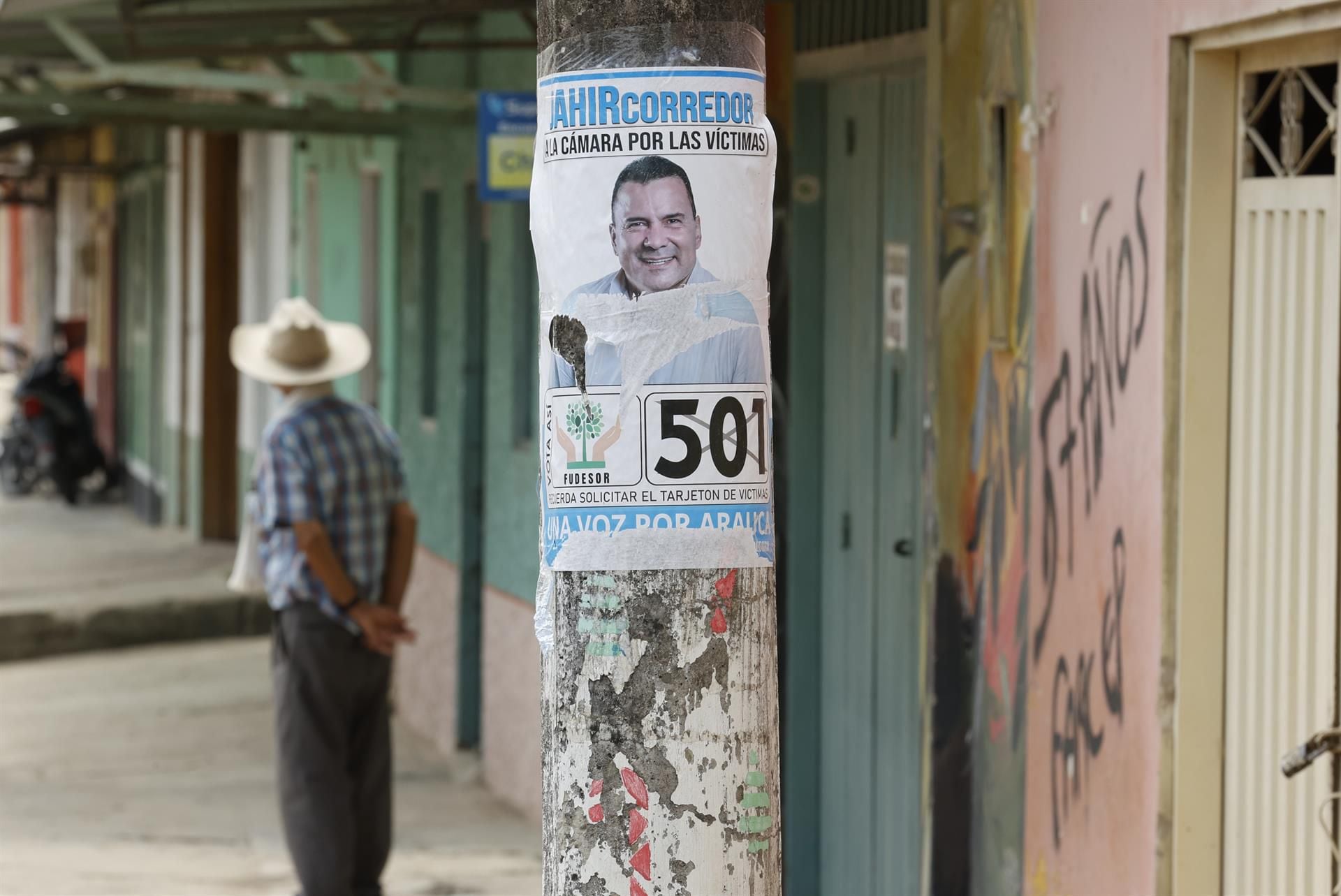Colombia enters a new electoral cycle with the legislative elections on March 13, which will be followed by the presidential elections on May 29, in a scenario marked by the pandemic, the social outbreak and the upsurge in violence.
More than 38.8 million Colombians are eligible to vote on Sundayday in which the entire Senate and House of Representatives will be electedas well as the 16 peace seats in the Chamber and the presidential candidates of three political coalitions.
SIGHT: Colombia: What is at stake in the elections for Congress this Sunday?
The task is extensive, since there are many decisions to be made in elections that have “special importance” due to the situation in which they will take place, Patricia Muñoz Yi, professor and researcher at the Faculty of Political Science and International Relations of the Pontifical Javeriana University.
Although in this first electoral appointment the composition of the Congress and the special constituencies of peace are decided, the presidential consultations have acquired such relevance that they have begun to take shape as a kind of first round.
- Elections in Colombia 2022: where to vote, how to vote and everything about legislative votes
- Paramilitaries threaten to kill magistrates who decriminalized abortion in Colombia
- Colombia announces that it will stop requiring the use of the mask in open spaces
They will be, on the one hand, the first post-pandemic elections, with the challenges that this implies in terms of economic and social recovery, which will undoubtedly be among the priorities of Colombian voters, as well as in the logistical aspect, which will have to contemplate the monitoring of sanitary measures.
Although the latest economic data from the country showed a vigorous recovery of 10.6% in 2021, many fronts remain open in terms of health.
PROTESTS, VIOLENCE AND FRAGMENTATION
A determining factor for these elections and that could result in the polls next Sunday are the unsatisfied demands and the claims that since 2019 Colombians have manifested in the streets, in the strongest social outburst in recent years.
Although the health crisis stopped these protests, they were soon resumed because the demands were still latent and in 2021 the largest demonstrations were experienced in a scenario that quickly turned violent, including human rights violations.
The young people, the peasants, the inhabitants of the most remote regions, human rights defenders, among others, brought to light all their demands in a kind of general discontent which pointed to a disagreement with the results of the Government.
These protests “did not come from a single sector nor did they have a single purpose,” which reflects the high levels of dissent installed in Colombian society, explains Muñoz, which could materialize at the polls.
In fact, when reviewing public opinion studies, adds the Colombian researcher, “an enormous negativism and discontent among Colombians” is discovered.
The electoral panorama, on the other hand, points to a change in the make-up of the benches in Congress, both due to the absence of major voters -such as former President Álvaro Uribe, for example- and due to a campaign that, compared to previous electoral years , has been cold, with little emotion on the part of the candidates and without major events.
Thus, political parties aspire to form middle benches, without absolute majorities, what will entail the need to build coalitions and negotiate with the rest of the formations, is clear from Muñoz’s analysis.

All these peculiarities take place under an umbrella of violence that has increased in recent months, especially in departments such as Arauca, Cauca and Norte de Santander, where both the guerrillas of the National Liberation Army (ELN), FARC dissidents and gangs of drug dealers
REPRESENTATION, A PENDING SUBJECT
A pending subject that will be examined on this day is the representation of women in Congress, something that could begin to change since female voices have emerged that demand leadership and even aspire to the Presidency.
The lack of women in these spaces of power is “worrying”, above all because Colombia progress “very slowly” to close this gap, laments Muñoz. The balance of 2018, moreover, was not “very encouraging”, since 23 women were elected out of a total of 108 seats in the Senate, while in the case of the House of Representatives they were 32 out of 171.
This represents a representation of 19.7% of women in Congress, according to a report by the National Registry and UN Women, a figure that is ten percentage points below the data in Latin America and the Caribbean.
But the participation of underrepresented groups, such as indigenous minorities and Afro-Colombians, is also at stake, in addition to the 16 special constituencies for peace, where the victims of the conflict in rural areas will have the option of taking their elected representatives to Congress.
It is “of vital importance” that these constituencies remain “in the hands of candidates who can contribute to the work of the region”which are usually the most neglected and with the least presence of the State and that “unfortunately today they begin to suffer again the presence of some armed groups outside the law”, adds the researcher.
___________________________________
- Putin says Western sanctions are like a ‘declaration of war’
- Ukraine shows on social networks the missile attack on a helicopter: “This is how the Russian occupiers die!” | VIDEO
- Visa and Mastercard suspend operations in Russia due to the invasion of Ukraine
- The strange act of Vladimir Putin between jokes, flowers and stewardesses in full offensive in Ukraine
- British journalists recorded the moment they were fired upon by Russian troops in Ukraine
- War correspondent in Ukraine: “No one imagined that this would happen with such brutality”
Source: Elcomercio

:quality(75)/cloudfront-us-east-1.images.arcpublishing.com/elcomercio/QYGX7CMAMFAAFEIQHGZPN2J47U.jpg)


:quality(75)/cloudfront-us-east-1.images.arcpublishing.com/elcomercio/GE3DAMBNGAZC2MJQKQYDAORRGY.jpg)


